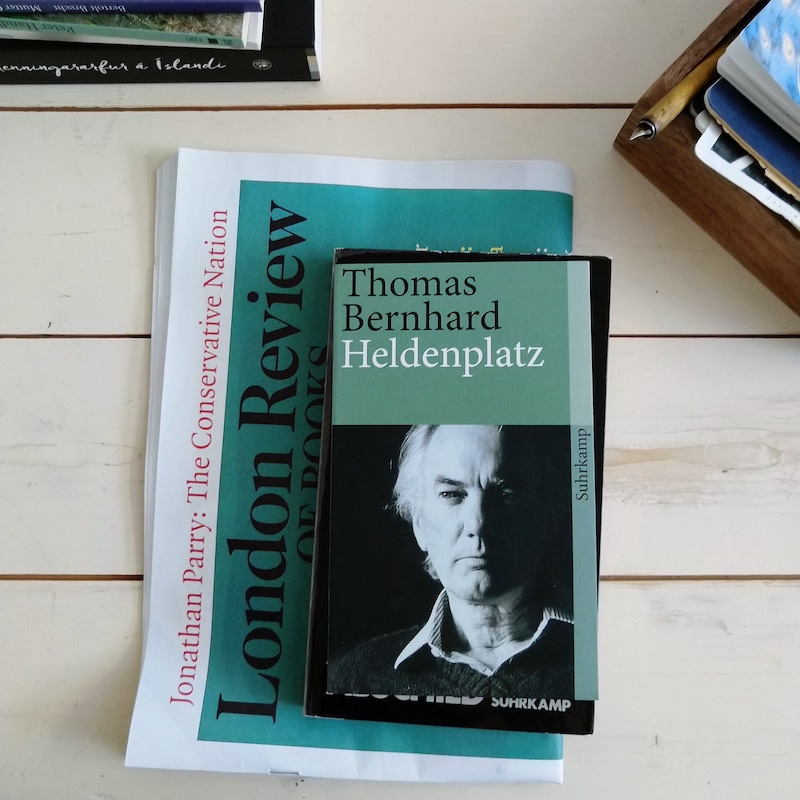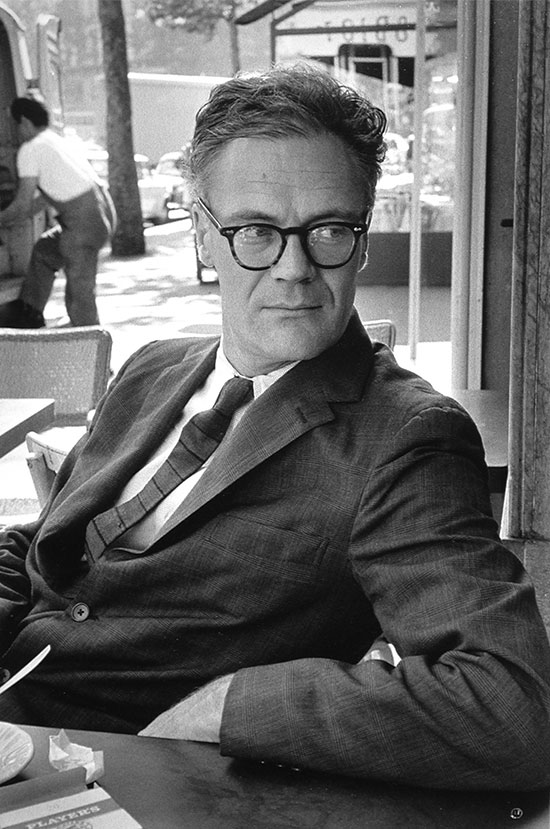If you follow me on Instagram you know that I usually don't write long captions, nor do I copy nor share them on the blog. Sometimes I use the same pics. Yesterday, however, I wrote about my experience in Austria and would like to keep these reflections on the blog. You can look at this as a peek into my next reading list, which includes the play Heldenplatz by the Austrian writer Thomas Bernhard. I will probably write about it later, in a Reading journal entry. That said, here is yesterday's caption with added links:
Thomas Bernhard (1931-1989) is an Austrian novelist and playwright that I still haven't read. For my next reading list, I bought a Suhrkamp edition of his play Heldenplatz, which he wrote on the 50th anniversary of the 'Anschluss', the annexation of Austria by Hitler's Germany [the Anschluss took place on 12 March 1938]. Anti-Semitism is the play's major theme.
Austria is my adopted country and I believe literature is one of the best ways to learn about the history and culture of a nation. By that, I'm referring to the things the history books usually leave out. Most of my time in Austria has been spent in this pandemic, which has limited my chances to be out and about; to meet people.
The Austrians I have met are all very friendly. However, what I cannot help noticing is that in magazines this country is depicted as White. Whether it's done intentionally, I cannot say. As I'm white, I have no experience of racism, but I have sat in waiting rooms and leafed through Austrian magazines, which present an idyllic view of a rich country with beautiful landscapes and white people. Lots of white people. I have searched and counted: In one magazine I found a group photo with one Asian woman and in another a small one with a black man. I wonder if the Austrians themselves even notice this.
Anyway, Bernhard's play, which some Austrians found hard to swallow, is one way for me to practise my German during the pandemic.
(Bloomsbury has published an English translation of the play Heldenplatz by Meredith Oakes.)
Austria is my adopted country and I believe literature is one of the best ways to learn about the history and culture of a nation. By that, I'm referring to the things the history books usually leave out. Most of my time in Austria has been spent in this pandemic, which has limited my chances to be out and about; to meet people.
The Austrians I have met are all very friendly. However, what I cannot help noticing is that in magazines this country is depicted as White. Whether it's done intentionally, I cannot say. As I'm white, I have no experience of racism, but I have sat in waiting rooms and leafed through Austrian magazines, which present an idyllic view of a rich country with beautiful landscapes and white people. Lots of white people. I have searched and counted: In one magazine I found a group photo with one Asian woman and in another a small one with a black man. I wonder if the Austrians themselves even notice this.
Anyway, Bernhard's play, which some Austrians found hard to swallow, is one way for me to practise my German during the pandemic.
(Bloomsbury has published an English translation of the play Heldenplatz by Meredith Oakes.)
Adding to yesterday's reflections, I do realise that Austrians are in the majority, about 80%, but in light of history and increased immigration, I would have expected growing awareness. I have lived in several European countries and perhaps there I didn't notice this white image in magazines. Yet, I don't think so. I don't remember this kind of evident whiteness. By the way, I found an interesting article from 2018 on the website of The Irish Times, called Vienna is ranked world’s ‘most liveable city’, but for whom? (with the subtitle: For some of my immigrant friends here, the welcome has been far from warm). It focuses on the situation in Vienna and its author paints a completely different picture than a white one, of a multinational community to which the magazines I have leafed through do not seem to make an attempt to appeal.
Well, spring has sprung with sun and seventeen degrees so there is no reason to complain about the Austrian weather.
image by me, appeared on Instagram 25/03/21














